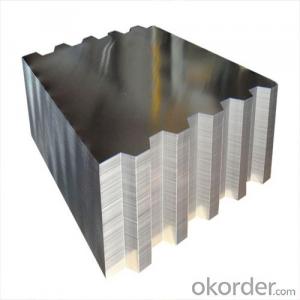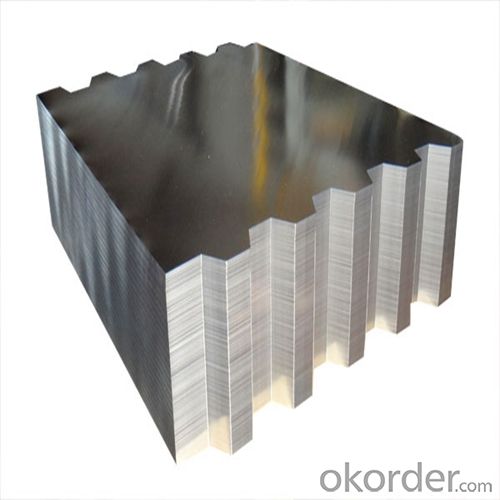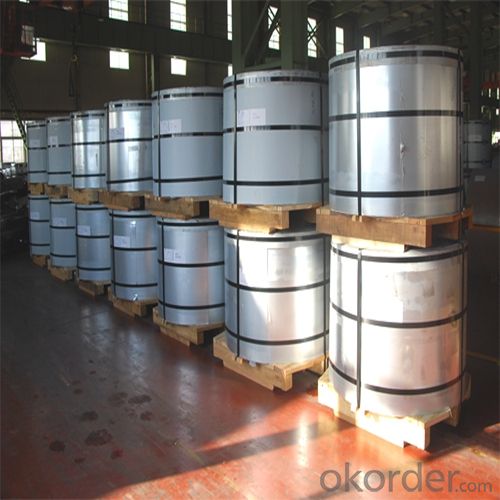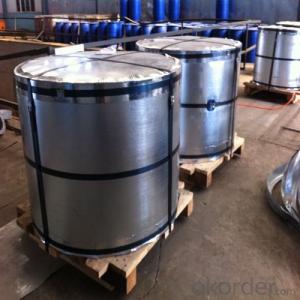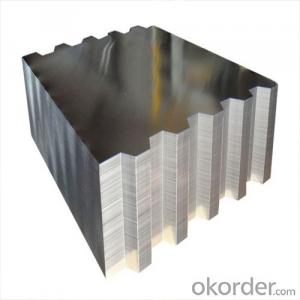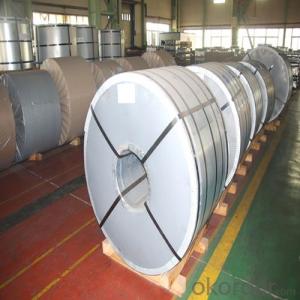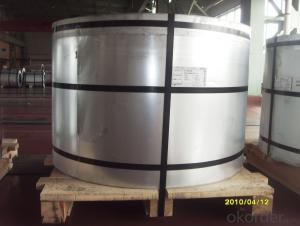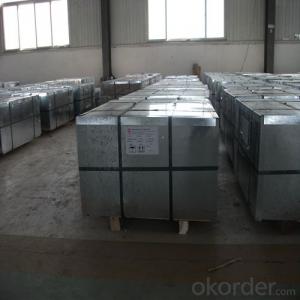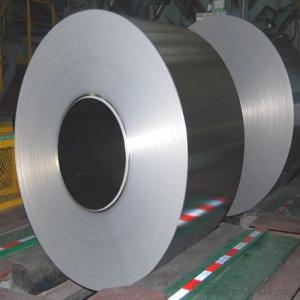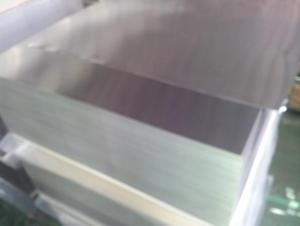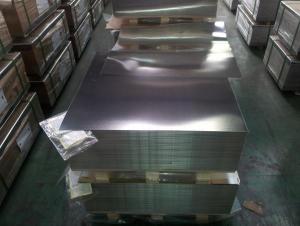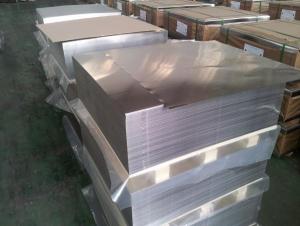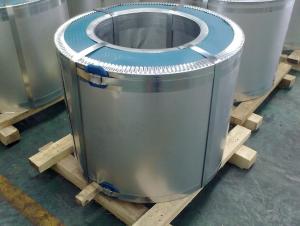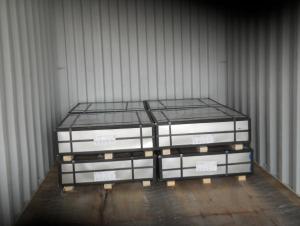Electrolytic Tinplate Coils or Sheets of Prime Quality for Chemical Use 0.17mm Thickness
- Loading Port:
- Qingdao
- Payment Terms:
- TT OR LC
- Min Order Qty:
- 25 m.t.
- Supply Capability:
- 30000 m.t./month
OKorder Service Pledge
OKorder Financial Service
You Might Also Like
1.Structure of Electrolytic Tinplate Coils or Sheets of Prime Quality for Chemical Use 0.17mm Thickness Description
Tinning is the process of thinly coating sheets of wrought iron or steel with tin, and the resulting product is known as tinplate. It is most often used to prevent rust.
2.Main Features of the Electrolytic Tinplate Coils or Sheets of Prime Quality for Chemical Use 0.17mm Thickness
Appearance – Tinplate is characterized by its beautiful metallic luster. Products with various kinds of surface roughness are produced by selecting the surface finish of the substrate steel sheet.
Paintability and printability – Tinplates have excellent paintability and printability. Printing is beautifully finished using various lacquers and inks.
Formability and strength – Tinplates have got very good formability and strength. By selecting a proper temper grade, appropriate formability is obtained for different applications as well as the required strength after forming.
Corrosion resistance – Tinplate has got good corrosion resistance. By selecting a proper coating weight, appropriate corrosion resistance is obtained against container contents. Coated items should meet 24 hour 5 % salt spray requirement.
Solderability and weldability – Tinplates can be joined both by soldering or welding. These properties of tinplate are used for making various types of cans.
Hygienic – Tin coating provides good and non toxic barrier properties to protect food products from impurities, bacteria, moisture, light and odours.
Safe – Tinplate being low weight and high strength makes food cans easy to ship and transport.
Eco friendly – Tinplate offers 100 % recyclability.
Tin is not good for low temperature applications since it changes structure and loses adhesion when exposed to temperatures below – 40 deg C.
3.Electrolytic Tinplate Coils or Sheets of Prime Quality for Chemical Use 0.17mm Thickness Images
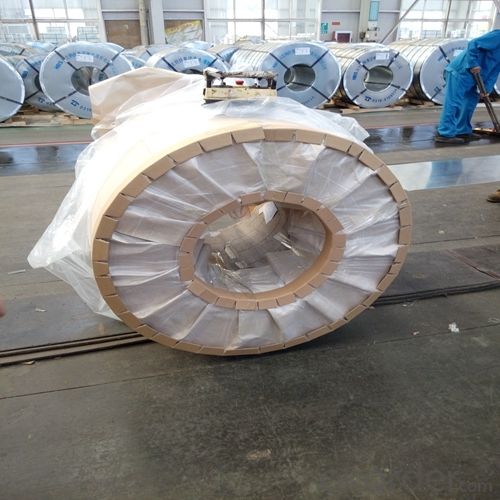
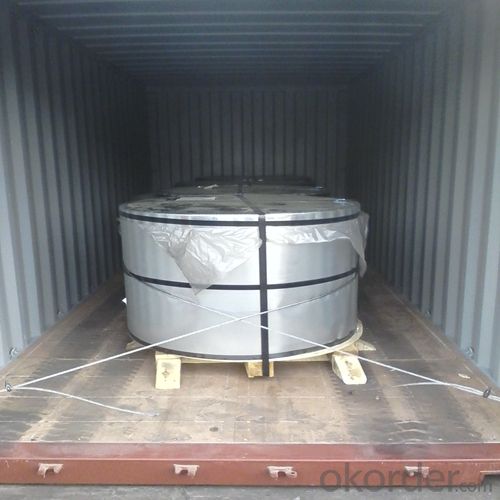
4.Electrolytic Tinplate Coils or Sheets of Prime Quality for Chemical Use 0.17mm Thickness Specification
Standard: ISO 11949 -1995, GB/T2520-2000,JIS G3303,ASTM A623, BS EN 10202
Material: MR
Thickness:0.17mm
Width: 600mm
Temper: T3
Annealing: BA
Coil Inner Diameter: 508mm
Weight: 6-10 tons/coil 1~1.7 tons/sheets bundle
Passivation:311
Oil: DOS
Surface: Finish
5.FAQ of Electrolytic Tinplate Coils or Sheets of Prime Quality for Chemical Use 0.17mm Thickness
- How are the tinplates specified?
The tinplates are specified as per the steel base, extent of tempering, the coating weight, annealing method and the surface finish.
- How many types there are for base steels?
The base steels are of three types: Type MR, L, D
- Q: What are the main innovations in tinplate manufacturing?
- Some of the main innovations in tinplate manufacturing include the introduction of continuous annealing processes, advancements in tin coating technology, improved quality control systems, and the use of automated production lines. These innovations have led to increased efficiency, higher quality tinplate products, and reduced environmental impact in the manufacturing process.
- Q: How does tinplate contribute to the overall portability of packaging?
- Tinplate contributes to the overall portability of packaging by being lightweight and durable, making it easy to transport and handle. It also provides excellent protection against external elements such as moisture, light, and air, ensuring the contents remain intact during transit. Additionally, tinplate's compact and stackable nature allows for efficient storage and maximizes space utilization, further enhancing portability.
- Q: How does tinplate contribute to sustainability efforts?
- Tinplate contributes to sustainability efforts by being a highly recyclable material. It can be used repeatedly without losing its properties, reducing the need for new resource extraction. Additionally, tinplate is commonly used for food and beverage packaging, which helps preserve products and reduces food waste. Its durability and corrosion resistance also extend the lifespan of products, making it a sustainable choice for various industries.
- Q: How can tinplate be rustproof? Products must not be oil
- RP014C-23A thin layer quick drying antirust oil is made up of film forming agent, oil soluble corrosion inhibitor and refined petroleum solvent. It is a kind of volatile long-term antirust oil.
- Q: What are the safety regulations for using tinplate in toys?
- The safety regulations for using tinplate in toys vary depending on the country or region. Generally, these regulations ensure that tinplate used in toys meets specific standards for lead content, sharp edges, choking hazards, and overall product safety. Manufacturers are typically required to comply with testing, certification, and labeling requirements to ensure the safety of children using tinplate toys.
- Q: Can tinplate be embossed?
- Yes, tinplate can be embossed.
- Q: How is tinplate manufactured?
- Tinplate is manufactured by coating thin sheets of steel with a layer of tin through a process known as electrolytic deposition. The steel sheets are first cleaned and then passed through an electrolyte bath containing a solution of tin salts. An electric current is applied, causing tin ions to be attracted to the steel surface, resulting in a uniform tin coating. Finally, the tin-coated steel is rolled and annealed to improve its mechanical properties, creating the final product known as tinplate.
- Q: What are the main factors influencing the pricing of tinplate?
- The main factors influencing the pricing of tinplate include the cost of raw materials such as tin and steel, supply and demand dynamics in the market, production and transportation costs, global economic conditions and trade policies, technological advancements in the tinplate industry, and fluctuations in currency exchange rates. Additionally, any regulations or tariffs imposed on tinplate imports or exports can also impact its pricing.
- Q: What are the different types of tinplate coatings available?
- There are several types of tinplate coatings available, including electrolytic tinplate (ETP), tin-free steel (TFS), and black plate. ETP is the most commonly used and consists of a thin layer of tin on both sides of the steel substrate. TFS, on the other hand, does not have a tin coating but is instead coated with a layer of chromium or chromium oxide. Black plate refers to steel that has not been coated with any protective layer and is typically used for industrial applications.
- Q: What are the different closure options for tinplate packaging?
- The different closure options for tinplate packaging include twist-off caps, lug caps, screw caps, and press-on caps.
Send your message to us
Electrolytic Tinplate Coils or Sheets of Prime Quality for Chemical Use 0.17mm Thickness
- Loading Port:
- Qingdao
- Payment Terms:
- TT OR LC
- Min Order Qty:
- 25 m.t.
- Supply Capability:
- 30000 m.t./month
OKorder Service Pledge
OKorder Financial Service
Similar products
Hot products
Hot Searches
Related keywords
